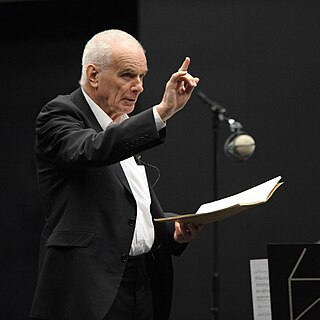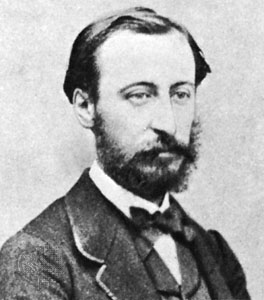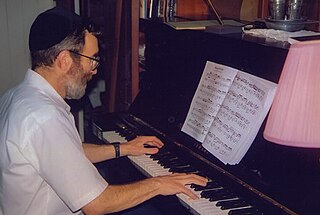Related Research Articles

Joan Tower is a Grammy-winning contemporary American composer, concert pianist and conductor. Lauded by The New Yorker as "one of the most successful woman composers of all time", her bold and energetic compositions have been performed in concert halls around the world. After gaining recognition for her first orchestral composition, Sequoia (1981), a tone poem which structurally depicts a giant tree from trunk to needles, she has gone on to compose a variety of instrumental works including Fanfare for the Uncommon Woman, which is something of a response to Aaron Copland's Fanfare for the Common Man, the Island Prelude, five string quartets, and an assortment of other tone poems. Tower was pianist and founding member of the Naumburg Award-winning Da Capo Chamber Players, which commissioned and premiered many of her early works, including her widely performed Petroushskates.

Sir Peter Maxwell Davies was an English composer and conductor, who in 2004 was made Master of the Queen's Music.
Graham Fitkin is a British composer, pianist and conductor. His compositions fall broadly into the minimalist and postminimalist genres. Described by The Independent in 1998 as "one of the most important of our younger composers", he is particularly known for his works for solo and multiple pianos, as well as for music accompanying dance.

The Piano Concerto No. 2 in G minor, Op. 22 by Camille Saint-Saëns was composed in 1868 and is probably Saint-Saëns' most popular piano concerto. It was dedicated to Madame A. de Villers. At the première on 13 May the composer was the soloist and Anton Rubinstein conducted the orchestra. Saint-Saëns wrote the concerto in three weeks and had very little time to prepare for the première; consequently, the piece was not initially successful. The capricious changes in style provoked Zygmunt Stojowski to quip that it "begins with Bach and ends with Offenbach."

The Piano Concerto No. 4 in C minor, Op. 44 was composed by Camille Saint-Saëns in 1875. It was premièred on October 31, 1875, at the Théâtre du Châtelet of Paris, with the composer as the soloist. The concerto is dedicated to Anton Door, a professor of piano at the Vienna Conservatory.
Edward Gregson is an English composer of instrumental and choral music, particularly for brass and wind bands and ensembles, as well as music for the theatre, film, and television. He was also principal of the Royal Northern College of Music.

Paul Schoenfield, also spelt Paul Schoenfeld or Pinchas Schoenfeld, was a classical composer and pianist known for combining popular, folk, and classical music forms. He was born in Detroit, Michigan and died in Jerusalem, Israel.

The Piano Concerto/MGV is the 23rd album by Michael Nyman, released in 1994. It contains two compositions, The Piano Concerto and MGV. The first is performed by Kathryn Stott and the Royal Liverpool Philharmonic Orchestra conducted by Michael Nyman, and the second is performed by the Michael Nyman Band and Orchestra with Michael Nyman at the piano.
Kathryn Stott is an English classical pianist who performs as a concerto soloist, recitalist and chamber musician. Her specialities include the English and French classical repertoire, contemporary classical music and the tango. She is a professor at the Royal Northern College of Music, Manchester and has organised several music festivals and concert series.
Miguel del Águila is a prolific Uruguay-born American composer of contemporary classical music. He has been nominated three times for Grammys and has received numerous other awards.

The Symphony No. 2 by Peter Maxwell Davies was commissioned by the Boston Symphony Orchestra in celebration of its centenary, and was composed in 1980. Seiji Ozawa conducted the world premiere with the BSO on 26 February 1981 at Symphony Hall, Boston. The same forces performed the New York premiere on 4 March that year at Carnegie Hall.

The Symphony No. 1 by Peter Maxwell Davies was composed between 1973 and 1976, and is dedicated to Sir William Glock, "as a mark of friendship and of appreciation of his work for contemporary music in his years as music controller at the B.B.C.". It was commissioned by the Philharmonia Orchestra, which gave the premiere of the symphony at the Royal Festival Hall, London, on 2 February 1978, with Simon Rattle conducting.
The Symphony No. 1, H. 289, is an orchestral composition by the Czech composer Bohuslav Martinů.
Fantaisie for piano and orchestra (L.73/CD.72), is a composition for piano and orchestra by French composer Claude Debussy. It was composed between October 1889 and April 1890, but only received its first public performance in 1919, a year after Debussy's death. The work is dedicated to the pianist René Chansarel, who had been scheduled to play the solo part for the cancelled premiere in 1890.
Worldes Blis is a motet for orchestra by the British composer Peter Maxwell Davies. It was first performed at The Proms on 28 August 1969 by the BBC Symphony Orchestra conducted by the composer.

The Concerto for Trumpet and Orchestra is a composition for trumpet solo and orchestra by the British composer Peter Maxwell Davies. The work was commissioned by the Philharmonia Orchestra for its then principal trumpeter John Wallace. It was given its world premiere by Wallace and the Philharmonia Orchestra under the conductor Giuseppe Sinopoli in Hiroshima on 21 September 1988.
The Flute Concerto in D major, Op. 283, is a composition for solo flute and orchestra by the composer Carl Reinecke. The work was composed in 1908 and was Reinecke's last concerto before his death. It was first performed on March 15, 1909 in Leipzig by the flutist Maximilian Schwedler, to whom the piece is dedicated.
The Piano Concerto No. 2 in D minor, Op. 23 by Edward MacDowell was completed in late 1885. Although some obvious similarities with Edvard Grieg's, Camille Saint-Saëns's and Franz Liszt's concertos have often been stated, MacDowell’s composition proves to be quite original, at least compared to his First Concerto. It was the first major piano concerto written by an American. It was also the only large-scale composition by MacDowell to remain in standard repertoire.
William Walton's Variations on a Theme by Hindemith is an orchestral piece in eleven continuous sections, first performed in 1963. It is a tribute to Walton's friend and fellow composer Paul Hindemith.
References
- 1 2 Davies, Peter Maxwell (1997). "Piano Concerto". G. Schirmer Inc. Retrieved 23 April 2016.
- ↑ David, Nice (2013). MAXWELL DAVIES, P.: Piano Concerto / Worldes Blis (CD liner). Naxos Records . Retrieved 23 April 2016.